

The 10 largest health insurance companies in the US control nearly 57% of the market, underwriting $821.5 billion worth of premiums in the past year. These figures are from the latest market share data from the National Association of Insurance Commissioners (NAIC).
In this article, Insurance Business takes a closer look at these industry giants. We will delve into the facts behind the numbers and give you an idea of what these companies offer.
If you want to learn more about the nation’s leading health insurers, you’ve come to the right place. Get to know the top 10 health insurance companies in the country in this guide.
The country’s accident and health insurance industry wrote more than $1.44 trillion worth of premiums in the past year, up by a whopping 112% from $680 billion in 2011. This indicates a robust health insurance space that caters to the medical and healthcare needs of the US population.
Here are the top 10 health insurance companies in the country based on NAIC’s latest industry report. The list is arranged by direct written premiums (DWP).
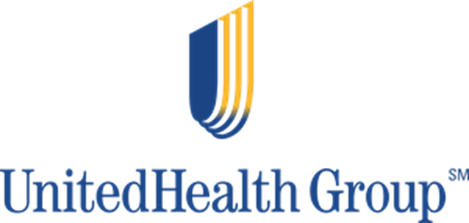
Head office: Minnetonka, Minnesota
DWP: $221.4 billion
Market share: 15.4%
UnitedHealth Group boasts a strong network of over 1.5 million medical and healthcare specialists and 6,200 hospitals. These professionals provide medical and dental benefits to the insurer’s more than 49 million members across the country. Here’s a breakdown of the group’s membership.

UnitedHealth policies are available nationwide. The health insurance giant delivers benefits and service through its two business units. These are:
UnitedHealthcare is the company’s health insurance unit offering members a range of healthcare services and coverage. These include:
Optum is the health insurance giant’s technology arm offering information and tech-enabled services through three platforms:
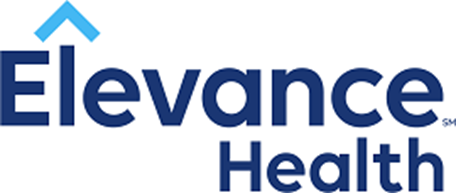
Head office: Indianapolis, Indiana
DWP: $103.4 billion
Market share: 7.2%
Previously known as Anthem, Elevance Health rebranded in June 2022. The insurer draws on its network of 1.7 million doctors and medical facilities to serve its more than 47.5 million members. This figure includes 21 million risk-based patients.
Apart from being among the largest health insurance companies in the US, Elevance Health is the biggest for-profit managed healthcare company in the Blue Cross Blue Shield Association.
The industry giant offers various health insurance plans covering medical, dental and eye care. These policies are available to employers and individuals, as well as their family members, through the group’s Anthem Blue Cross Blue Shield and Wellpoint brands.
Elevance Health also provides members with a range of healthcare services through its Carelon brand and other subsidiaries. The company’s policies are available in 14 states.
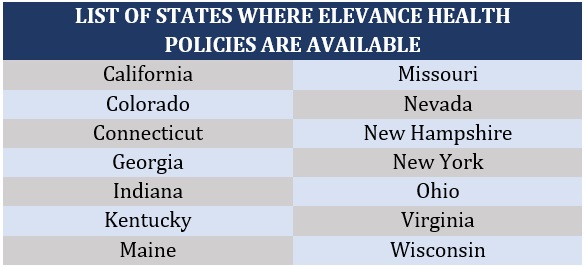
Health insurance companies – Elevance Health, list of states available

Headquarters: St. Louis, Missouri
DWP: $96.4 billion
Market share: 6.7%
Centene provides various services to government-funded healthcare programs for uninsured and underinsured Americans, including Medicare and Medicaid. The insurer is the country’s largest Medicaid managed care provider, with more than 28 million members across all 50 states.
Centene offers local health plans and health insurance products. The company partners with other healthcare and commercial groups to provide members with specialty services. These include:
Centene is backed by 67,800 employees nationwide.

Head office: San Francisco, California
DWP: $89.2 billion
Market share: 6.2%
Kaiser Permanente is one of the largest non-profit healthcare organizations in the country. The insurer serves 12.7 million members. Its health plans are available in California, Colorado, Georgia, Hawaii, Maryland, Oregon, Virginia, Washington, and the District of Columbia.
Kaiser Permanente provides budget-based plans that cover the following:

These services are delivered through Kaiser’s vast network consisting of:
The health insurer’s plans come with low premiums and zero deductibles. Around 212,970 employees handle the company’s operations.

Head office: Louisville, Kentucky
DWP: $87.0 billion
Market share: 6.0%
Humana is among the largest managed care companies in the country, with more than 17 million members across all 50 states. The health insurer offers individuals, employer groups, and anyone searching for government-sponsored plans affordable options. These include:
Members can access Humana’s products and services through three platforms:
Humana’s workforce comprises about 67,100 employees.
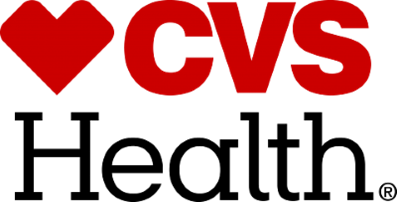
Head office: Woonsocket, Rhode Island
DWP: $83.9 billion
Market share: 5.8%
CVS Health is a diversified healthcare benefits provider and one of the largest health insurance companies in the nation. It serves more than 23 million members in all 50 states.
CVS Health has more than 9,900 retail locations and nearly 1,100 walk-in clinics across the US. It also operates a pharmacy benefits manager with about 100 million plan members, as well as a senior pharmacy care business that serves over one million patients every year.
The health insurance giant’s policies provide standard benefits. Members can also access specialty pharmacy services and standalone Medicare Part D prescription drug plans.
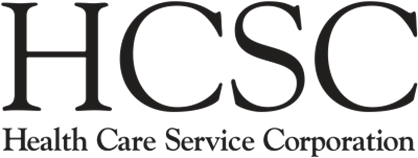
Head office: Chicago, Illinois
DWP: $51.0 billion
Market share: 3.5%
Health Care Service Corporation, more popularly known as HCSC, operates as a mutual legal reserve firm. It is also the largest customer-owned health insurance company in the country, with about 18.6 million members. The insurer offers life and health insurance policies and related services through its subsidiaries, including:
HCSC holds membership with the Blue Cross Blue Shield Association, one of the most popular health insurance brands in the US. The insurer’s policies are available in Texas, Oklahoma, New Mexico, Montana, and Illinois. HCSC employs more than 22,000 staff.

Head office: Bloomfield, Connecticut
DWP: $34.0 billion
Market share: 2.4%
Cigna is a global health insurer that serves around 19.5 million members in the US. It is also one of the largest health insurance companies in the world, catering to about 190 million clients across over 30 countries and territories.
In the US, Cigna offers health and dental policies, including Medicare plans, international healthcare coverage, and supplemental health insurance. It delivers products through two business units:
Cigna health plans are available in these 16 states:


Head office: Long Beach, California
DWP: $28.8 billion
Market share: 2.0%
Molina Healthcare specializes in government-sponsored programs for eligible individuals and families. It has about 5.1 million members in these 18 states:

Molina Healthcare partners with state governments and provides a range of healthcare services to individuals and families. The health insurer has been chosen by several states to join dual demonstration projects to manage the care for those qualified for Medicaid and Medicare.

Head office: Jacksonville, Florida
DWP: $26.5 billion
Market share: 1.8%
GuideWell operates as a non-profit mutual holding company. It serves around 27 million members in 35 states. The firm offers health insurance through various subsidiaries. These include:
Apart from health insurance, GuideWell also provides healthcare and health administrative services.
Here's a summary of the 10 largest health insurance companies in the US.
The US boasts several top health insurance companies known for their excellent coverage. Here are the three leading options:
Written premiums: $221.3 billion
Market share: 15.3%
UnitedHealth Group is a global healthcare company offering comprehensive solutions. The company has a significant market presence and provides diverse coverage options. It sits atop the list of the largest health insurance companies in the US.
Written premiums: $89.2 billion
Market share: 6.2%
Kaiser Permanente, a non-profit entity, focuses on holistic care and member well-being. It holds a substantial market share and offers comprehensive healthcare services in eight states and the District of Columbia.
Written premiums: $76.9 billion
Market share: 6.2%
Elevance Health, formerly Anthem, Inc., is committed to simplifying healthcare for millions across the US. It offers a wide range of healthcare solutions and holds a notable market share.
Considering its premiums and market share, UnitedHealth Group stands out as the health insurance company with the most comprehensive coverage. Its high volume of written premiums and extensive market presence reflect a broad spectrum of services and widespread popularity.
UnitedHealth Group further enhances its offerings through clinical expertise and advanced technology.
Remember that the best health insurance choice hinges on individual needs, including health requirements, budget constraints, and preferred healthcare networks. Consulting a qualified insurance agent or broker can help tailor the selection to specific circumstances.
The health insurance companies mentioned cater to a significant segment of the US population, offering diverse coverage options to suit varying needs.
The four most common health insurance plans are:
Each plan type has distinct advantages and disadvantages, making the choice dependent on individual preferences and priorities. These include provider flexibility, cost considerations, and preferred healthcare networks.
Find out how health insurance works in the US, as well as in the different regions we cover in this comprehensive guide to health insurance.
When assessing health insurance costs, premiums can vary significantly due to multiple factors, with the choice of health insurance companies and specific plan being critical.
UnitedHealth Group, a prominent industry player, reports annual direct written premiums of $221.3 billion, holding a substantial 15.4% market share.
Designating a health insurance plan as the "most expensive" isn't solely determined by the provider. It heavily hinges on the plan's coverage and individual circumstances.
The high cost of healthcare in the US stems from a range of contributing factors:
Prudent consumers must thoroughly assess their healthcare needs and financial limitations when choosing a health insurance plan.
Compare different health insurance companies, study the terms and conditions, and choose a plan that aligns with both your financial capacity and healthcare requirements.
Health insurance plays a crucial role in keeping you and your family financially protected. Find out what other types of insurance you will need in this comprehensive guide.
In the US, the decision to forgo health insurance may initially appear as a cost-saving measure, but it carries significant risks.
Healthcare costs are high, even when one is covered by insurance. However, those without insurance find themselves at a huge disadvantage. The inability to access necessary healthcare services and the overwhelming burden of medical bills are two compelling reasons to prioritize coverage.
Those lacking health insurance often face higher expenses for medical treatments that would otherwise be covered by their insurance plans.
In the absence of health insurance companies subsidizing healthcare costs, individuals bear full financial responsibility. This can lead to higher charges for identical medical services. When patients are unable to manage these expenses, hospitals or healthcare facilities may resort to legal action.
When making decisions on health insurance, it's important to assess your healthcare requirements and financial constraints. Comparing what providers offer and reviewing the terms and conditions of plans can help you find a plan that’s affordable and meets your needs.
Ultimately, many people and families find health insurance to be a good long-term investment. It brings peace of mind and ease in prioritizing their financial and physical health.
You can check out our Life and Health News section for breaking news and the latest updates in health insurance.
What do you think of the top health insurance companies in our list? Feel free to share your comments below.
